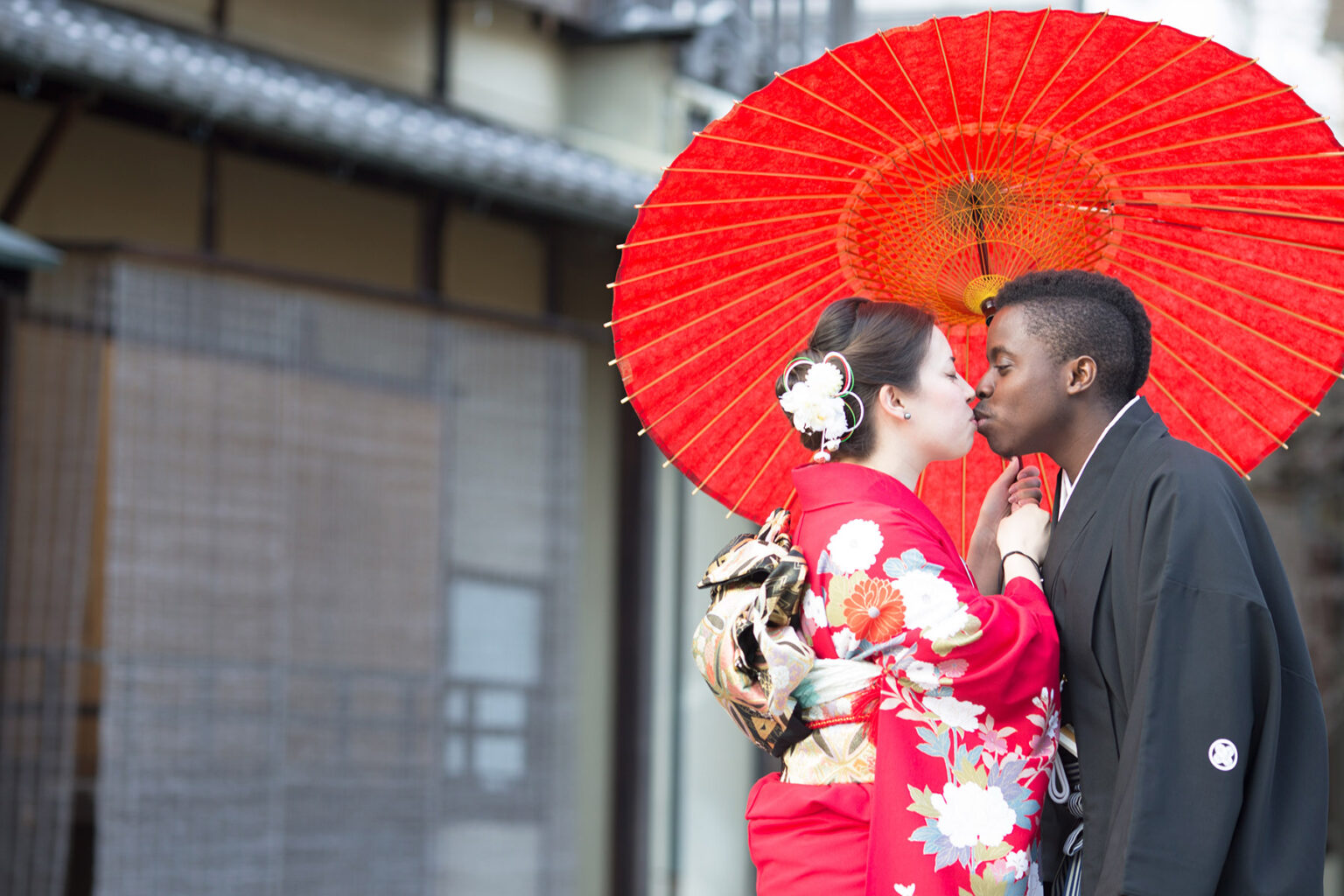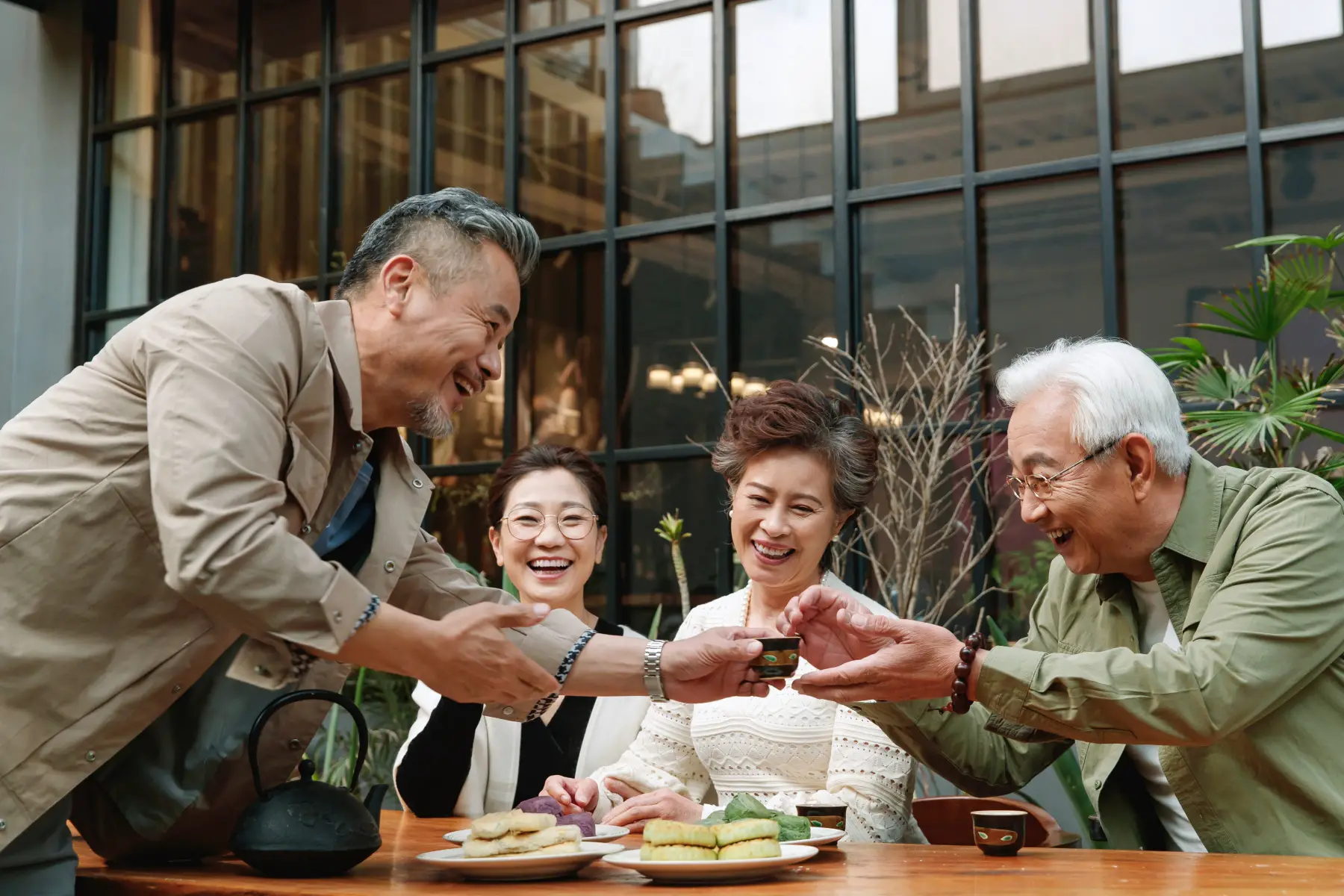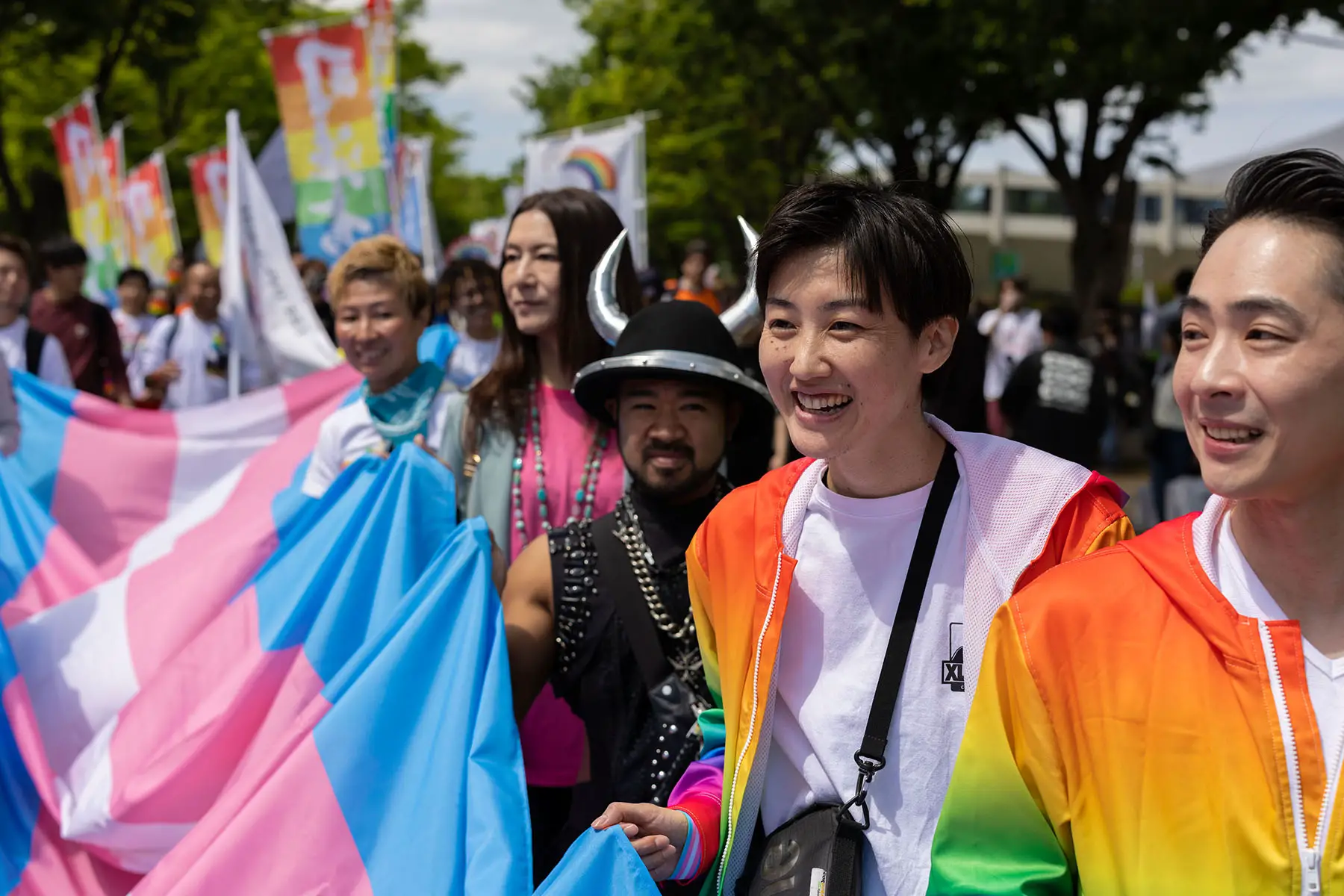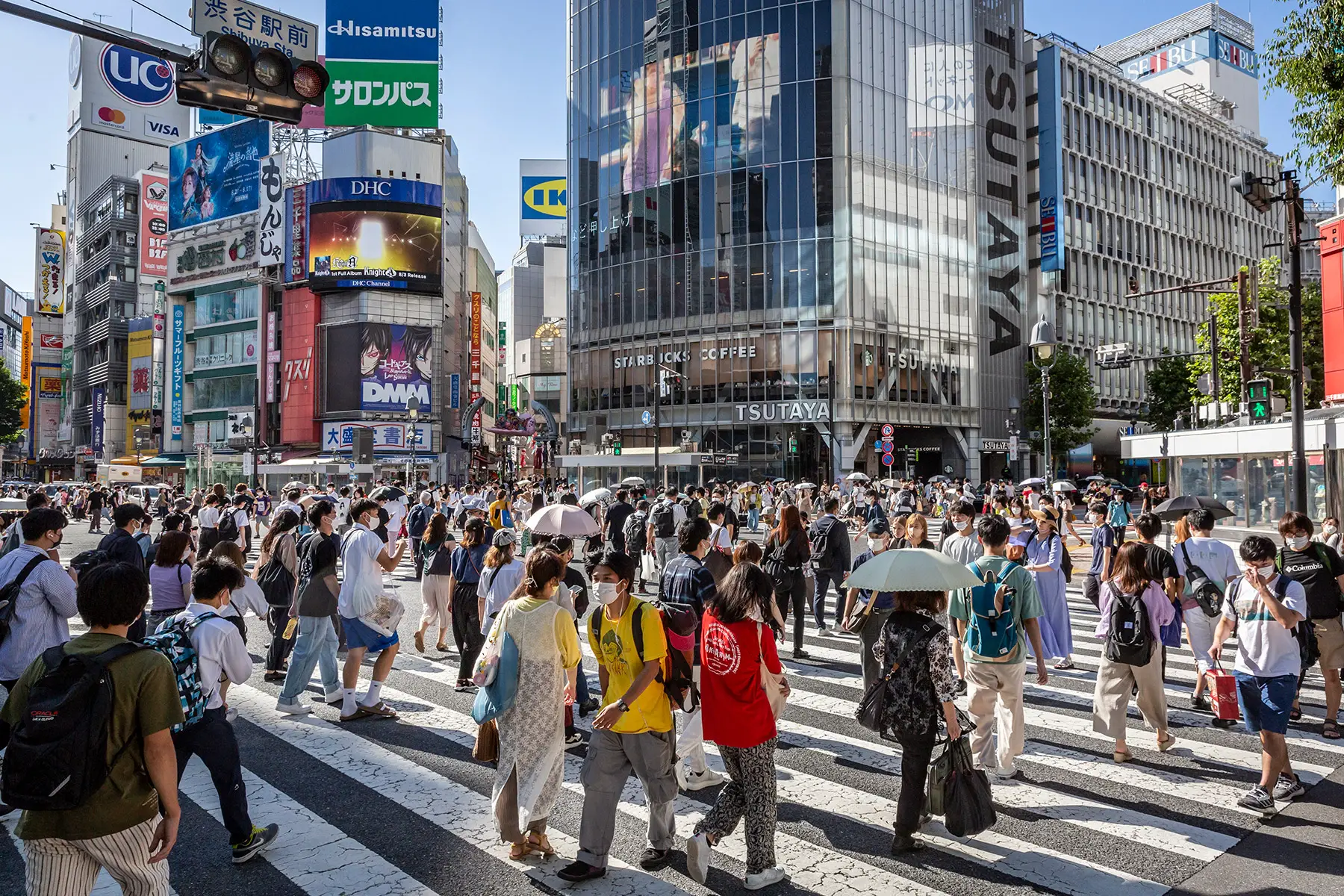Expats looking to tie the knot in Japan can explore the country’s unique wedding traditions. LGBT+ couples, on the other hand, not so much.
Get a breakdown of marriages in Japan, and find out your options for a ceremony and reception, by reading the following:
- An overview of marriage in Japan
- What types of weddings are possible in Japan?
- Gay marriage and same-sex partnerships in Japan
- Civil/domestic partnerships in Japan
- The legal requirements for getting married in Japan
- Wedding planning in Japan: step by step
- The cost of getting married in Japan
- Top wedding locations in Japan
- Wedding traditions and customs in Japan
- Useful resources
An overview of marriage in Japan
Fewer people are getting married (結婚, kekkon) in Japan than in the past, with only 4.1 marriages per 1,000 inhabitants (in Japanese) recorded in 2021. In total, there were 501,116 marriages in the country that year. This continues the downward trend which began in the 1970s.
While most women in Japan still marry in their late 20s, a greater proportion is delaying marriage. In fact, more Japanese women are now waiting until their 30s to marry than did in the 1990s. Similarly, the average age of Japanese men at their first marriage has risen from 28.5 in 1995 to 31.2 in 2019.
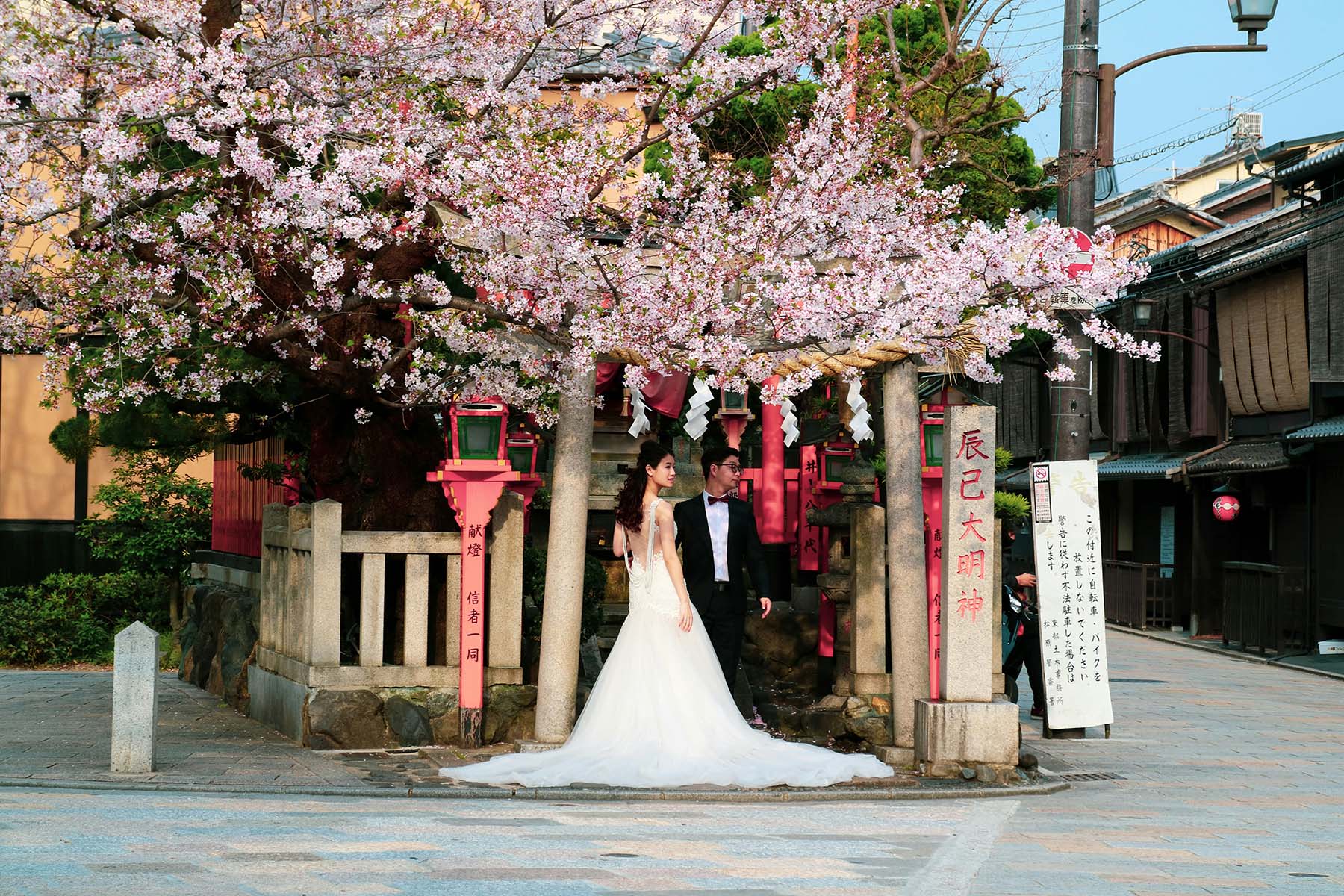
Many experts believe that there are several reasons why marriage rates in Japan are declining. For example, many young Japanese women are focused on building a career and enjoying their independence while single.
Conversely, young Japanese men worry about keeping a steady job and being able to provide for a family. The time pressures of work and the inability to maintain a good work-life balance are other barriers for men.
Despite this, marriage rates in Japan are still reasonably high (PDF) compared to other OECD countries. The average rate among these nations is just under four marriages per thousand people.
Attitudes towards marriage in Japan
Younger Japanese people seem to be becoming more adverse to marriage, with fewer legally sealing the deal on their relationship. In fact, a recent survey found that 17.3% of men and 14.6% of women between the ages of 18 and 34 intend never to marry.
These are the highest figures reported since this survey began in 1982. In recent decades, a host of social, political, and economic pressures have crystalized into evolving views of marriage in the country. Previously, many considered marriage a requirement, and people coupled off for various reasons.
In the 1990s, Japan began introducing legislation to encourage women into the workplace. Although more women are now in the workforce, social pressures mean that after having children (子供), many only return part-time.

Over the years, Japan has experienced significant economic upheavals that have jeopardized women’s ability to work in secure jobs. All of this has affected young people’s views on getting married in Japan.
Nowadays, most young Japanese people believe in marriages of love and individual choice, not a result of societal pressure. As a result, fewer people feel the need to get married.
What types of weddings are possible in Japan?
There are several different ways to celebrate a marriage in Japan. Technically, it requires a civil union (婚姻) where the couple registers their wedding with the local government (地方自治体). Unlike in many other countries, an official, legal marriage in Japan does not require an officiant or a ceremony – simply handing in the registration documents is enough.
Of course, many couples want to commemorate their big day with a ceremony (結婚式). So, many opt for a type of religious celebration. As such, Japanese Shinto ceremonies (神前式) and Christian masses (教会式) are common choices.
Japanese Shinto Wedding
Although the Shinto wedding ceremony does not legalize a marriage, it is a popular custom among local couples getting married in Japan.
They are full of symbolism – first, the pair receives a blessing through a ritual purification from a priest, who then proclaims the marriage to the gods. Immediately after this is the ritual sake sipping (三三九度), when the bride and groom each sip from the cup three times.
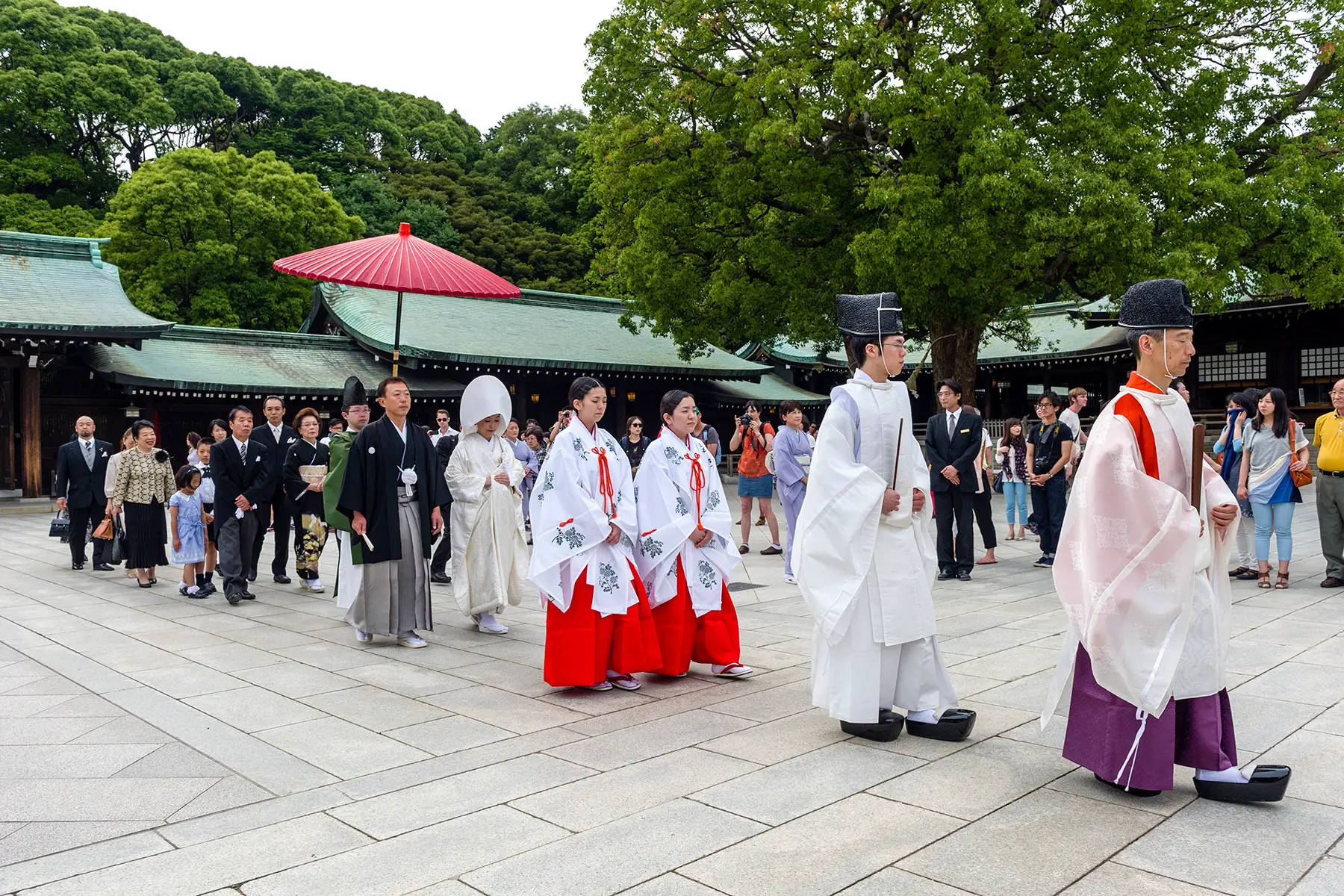
In a Shinto ceremony, the bride (花嫁) wears the traditional Japanese kimono (着物). There are three versions:
- A pure white kimono (白無垢)
- A colorful outer kimono (色打掛)
- A black and white kimono (黒引き振袖), traditionally worn at the weddings of Edo nobility
Japanese grooms (新郎) have a much simpler choice – they wear a black jacket (羽織) and a loose wrap with a stripe worn around the waist (袴).
Christian ceremonies
Perhaps due to European influences, in recent years, more Japanese couples choose to incorporate Christian wedding traditions. As such, some Japanese weddings include hymns, benedictions and prayers, and bible readings. Usually, they also exchange rings (指輪), vows, and a kiss at the end of the service.
There might also be other nods to non-Asian ceremonies throughout the day. For example, many brides now choose to wear white dresses (ウエディングドレス) and veils. They might also host a reception with cake-cutting and dancing.
Gay marriage and same-sex partnerships in Japan
Although Japan’s traditional society is becoming more tolerant, LGTBQ+ couples still face discrimination. Specifically, Japan does not recognize same-sex marriages (同性婚). As such, officially getting married in Japan is not an option for LGTBQ+ partners.
This could change soon, however. In March 2024, the Japanese high court ruled that the ban on same-sex marriages is unconstitutional.
However, it may be possible to gain some recognition of your same-sex partnership. For example, some municipalities will issue certificates. However, these documents do not offer any legal acknowledgment or rights. As such, partners have no right to inheritance or custody of children, for example.
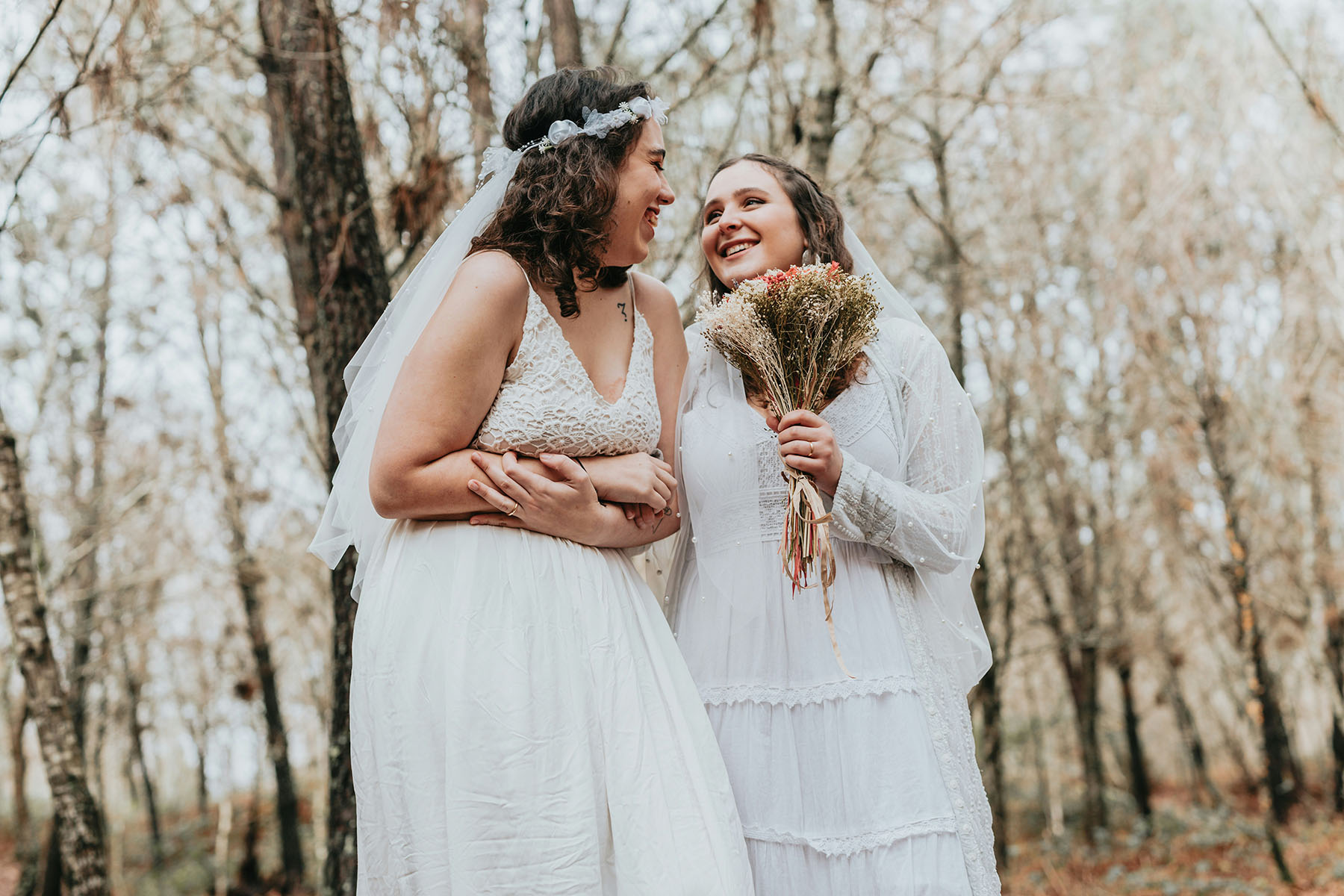
Still, with attitudes changing within the country, change may be on the horizon. Around 70% of people support same-sex marriage, and some district courts have ruled that it is unconstitutional to ban it. Currently, the conservative prime minister, Fumio Kishida (岸田 文雄) and his ruling party represent a major obstacle to its legalization.
Civil/domestic partnerships in Japan
Some couples, especially expats, may find the admin associated with getting married in Japan onerous. In this case, they may opt for a common-law marriage.
Some municipalities, such as Tokyo (東京), will issue partnership certificates that recognize the couple’s commitment but do not constitute a legal marriage. Although couples in these partnerships have a similar relationship to legally married couples, there are some significant differences.
For example, only one spouse can have custody of any children, and inheritances are only legal if there is a will. In addition, there may be problems when making medical decisions for each other, and a foreign partner may not be able to get a visa through their Japanese common-law spouse.
Common law partners can also keep separate last names, while legal spouses cannot. However, both types of couples receive the same treatment for social insurance, such as pensions and healthcare.
The legal requirements for getting married in Japan
Requirements and rights in Japan
Because Japanese law has certain stipulations for marriage, couples getting married in Japan must meet these to legalize their partnership.These requirements are in Articles 731 to 737 of the Japanese Civil Code and are as follows:
- Both partners must be at least 18 years old
- If either partner is 18, they require a parent’s approval
- In most cases, partners with any familial relationship – through blood, adoption, or other family marriages – cannot marry
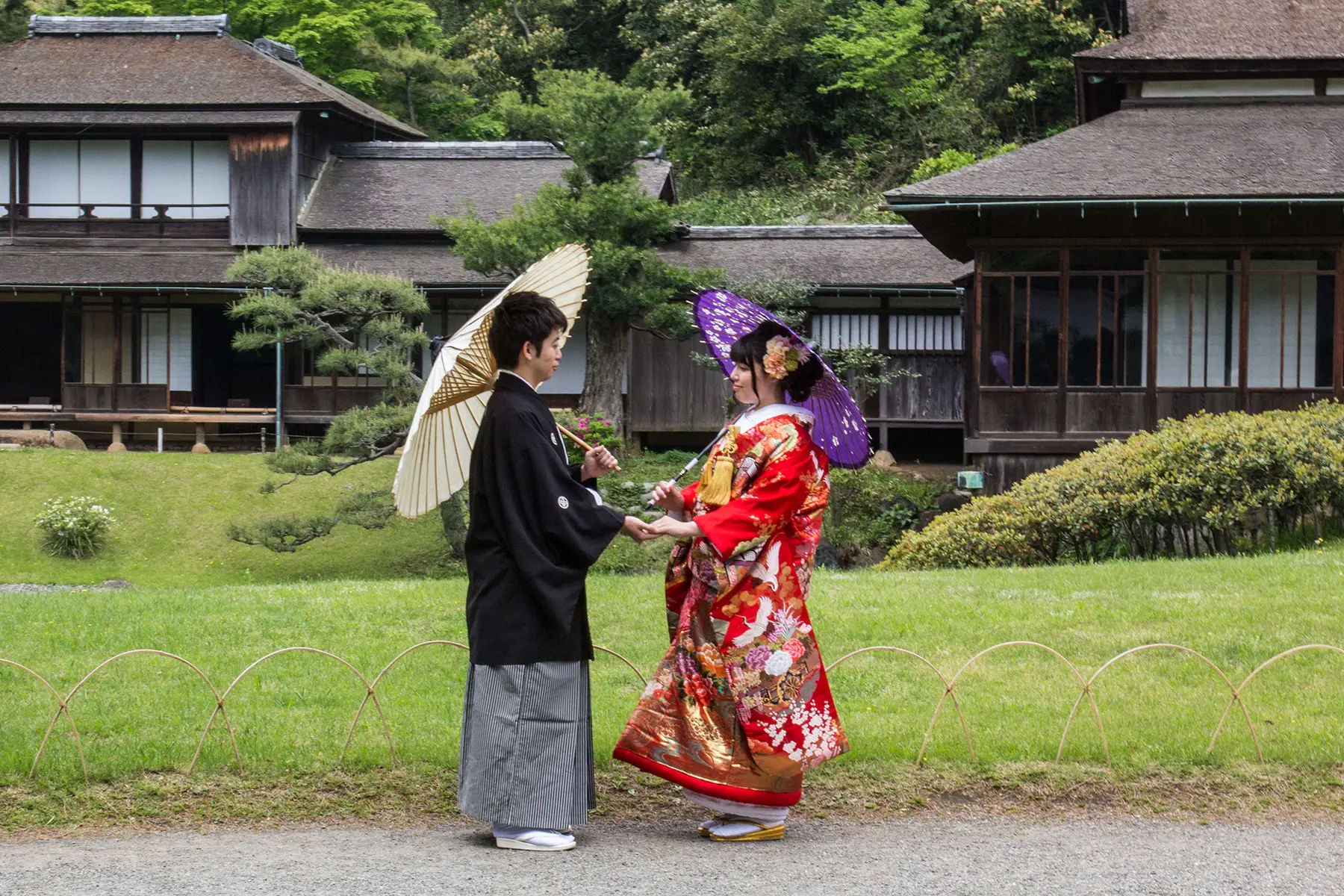
However, there is no nationality requirement for getting married in Japan. As long as you meet the requirements, you may have a wedding. However, there is a caveat for divorced women: they must wait at least six months before they can legally marry again.
Necessary paperwork and documentation in Japan
Getting legally married in Japan is not very complicated – couples can marry the same day they file their paperwork. Necessary documents include:
- The application for the marriage registration/license (婚姻届)
- Each partner’s birth certificate (出生証明書)
- Each partner’s passport
Although these are the main papers, some municipal offices may request others. Therefore, it’s best to check with your local office to ensure everything is in order.
In addition to all the above, internationals getting married in Japan must get an affidavit (宣誓供述書) testifying their competency to marry. This confirms that there are no impediments to the marriage and that they are legally free to get married. You must get this document from your country’s embassy in Japan, and it is best to do so two or three months beforehand.
For expats marrying a Japanese citizen, the Japanese partner must provide a copy of their Japanese family register (戸籍謄本) issued within a month of the marriage.
You will need to ask for a Certificate of Acceptance of Notification of Marriage (婚姻受理証明書), as this acts as your marriage certificate.
Wedding planning in Japan: step by step
Decide on the type of wedding
The first step to getting married in Japan is to decide on the type of wedding. Do you want to simply drop off the paperwork and register the marriage at the ward office? Or would you prefer to have a religious ceremony to solemnize the marriage? Knowing how you want to get married will help you figure out a guest list, budget, paperwork, and all the other steps.
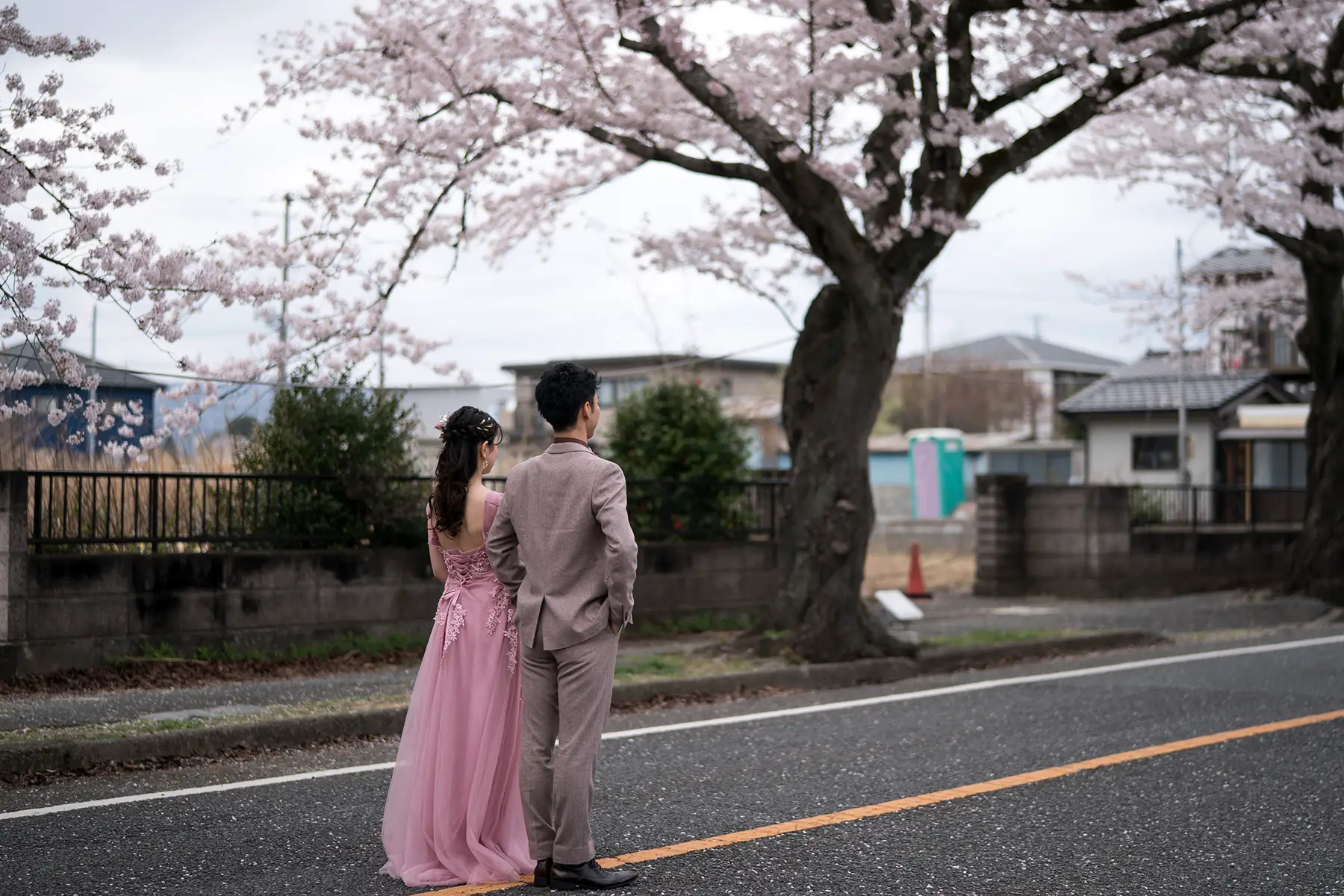
Pick a date and location
If you simply want to file paperwork, you can show up at your local ward office on the day you choose to legalize your marriage. But, if you aim to have a ceremony and party, you will need to view potential locations and find out the dates they are available to host your wedding.
There are plenty of wedding locations in Japan, so you can have exactly the ceremony you want. You could opt for a stunning outdoor setting, such as an area of natural beauty or garden. Other options include palaces, modern buildings, hotels, beaches, and more. If you choose to have a religious ceremony, there are numerous beautiful historic temples and churches.
Remember, if you’re an international, to keep your guests in mind while choosing a location. If you want friends and family to attend your wedding, think about their transport options and where they might stay.
Plan your wedding
Although having a wedding party can be a lot of fun, planning is essential. If you want a proper ceremony, you will have a lot of decisions to make. These might include:
- Finalizing a guest list
- Printing and sending out the invitations (招待状) (or creating online invites and a wedding site)
- Deciding on the wedding party (bridesmaids, groomsmen, etc.)
- Finding a photographer (and perhaps a videographer)
- Organizing accommodation for out-of-town guests and the wedding night
- Deciding on flowers for the venue, the bridal bouquet, buttonières, etc.
- Picking music for walking down the aisle, the ceremony, and the reception
- Organizing transport
- Choosing food and drinks
- Shopping for outfits – decide whether the bridge will wear a white dress, kimono, or something else. Consider, too, what the bridesmaids, groom, and groomsmen will be wearing. Make sure you plan well so you’re prepared if adjustments are necessary.
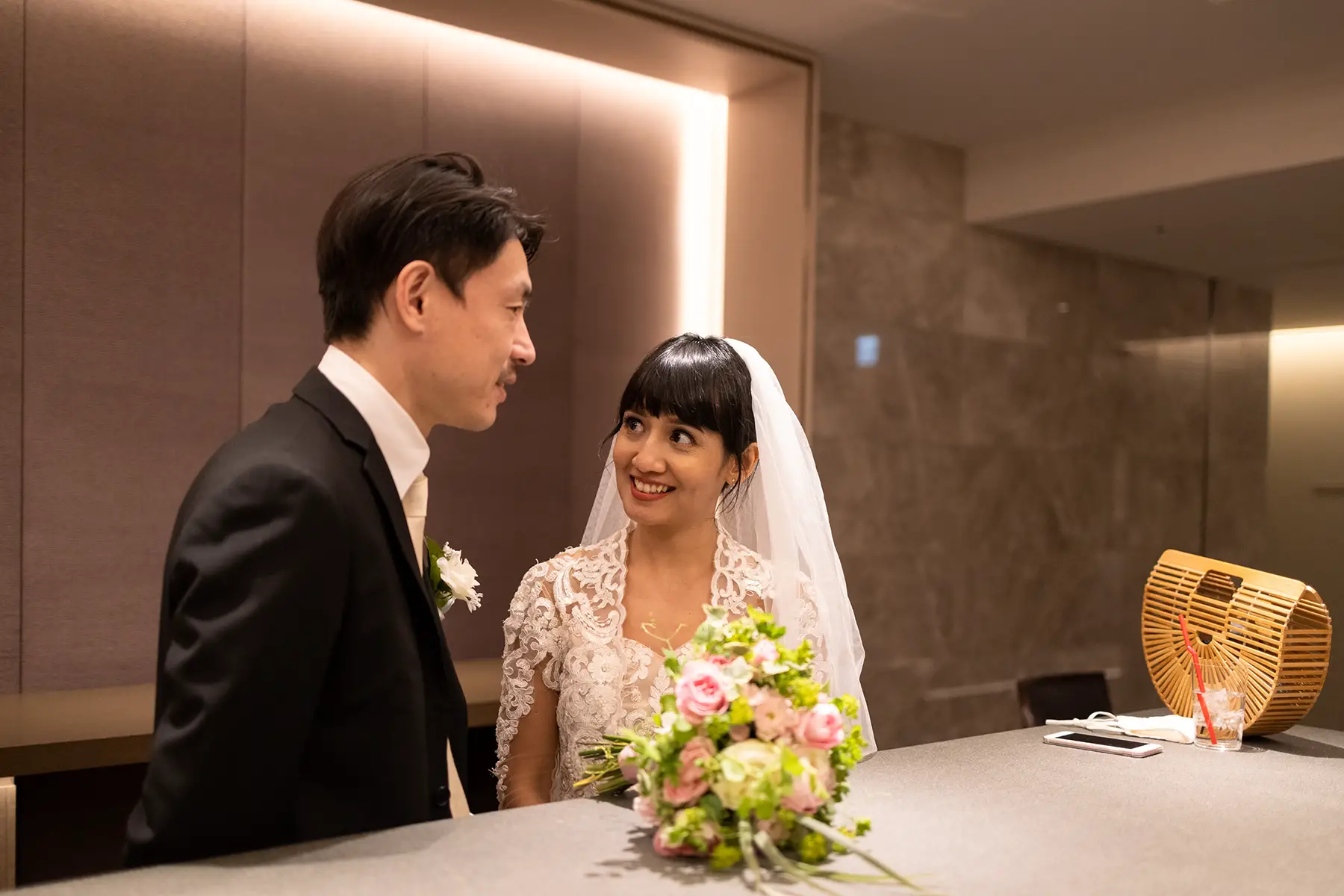
Obviously, getting married in Japan – or, indeed, anywhere else – requires a lot of planning. If you feel you do not have the time to organize the entire ceremony properly, you can hire a wedding planner to do the heavy lifting. As in many other countries, wedding planners are increasingly common in Japan, and these experts can take away much of the stress of the process.
File your paperwork
No matter what type of wedding, all couples getting married must register their marriage for it to be legal. This means gathering all the necessary documents, filling out the right forms, and submitting all of this to your local ward office.
For a step-by-step walkthrough:
- First, check what documents your local ward office requires for a wedding.
- Gather both partners’ passports and birth certificates and get certified copies.
- Foreign partners should get the affidavit for competency to marry from their embassy two to three months beforehand.
- Japanese partners must get their family register one month before the wedding.
- If either spouse has previously been married, they must prepare the divorce certificate (離婚証明, rikon shomei).
- Translate all documents into Japanese.
- Fill out the konin todoke (application form for marriage registration/license).
After gathering all the paperwork, you must go to the local ward office. Remember to bring two people (over the age of 20) to act as witnesses. It might seem unromantic, but the legal wedding in Japan simply involves handing over all the paperwork to a clerk in your ward office and waiting for them to approve it. Be sure to ask for the Certificate of Acceptance of Notification of Marriage.
The cost of getting married in Japan
The average cost of getting married in Japan is just over ¥3 million, including legal costs and the price of a ceremony. If you break these costs down, it begins to look something like this:
- Foreign citizen affidavit to marry: around ¥5,500 (depending on the embassy)
- Translation services for non-Japanese documents: around ¥11,000
- Registration/certificate of marriage: between ¥350–¥1,400
- Rental for the bridal outfit: ¥10,000–¥100,000
- Location: from ¥200,000
- Wedding planner: ¥250,000
- Photographer: ¥100,000–¥200,000
- Flowers: ¥30,000–¥60,000
- Full-service wedding package (includes venue, flowers, photography, catering): from ¥1 million.
Top wedding locations in Japan
Couples getting married in Japan can choose from an abundance of beautiful locations for their ceremony. Here are a few of the most popular places.
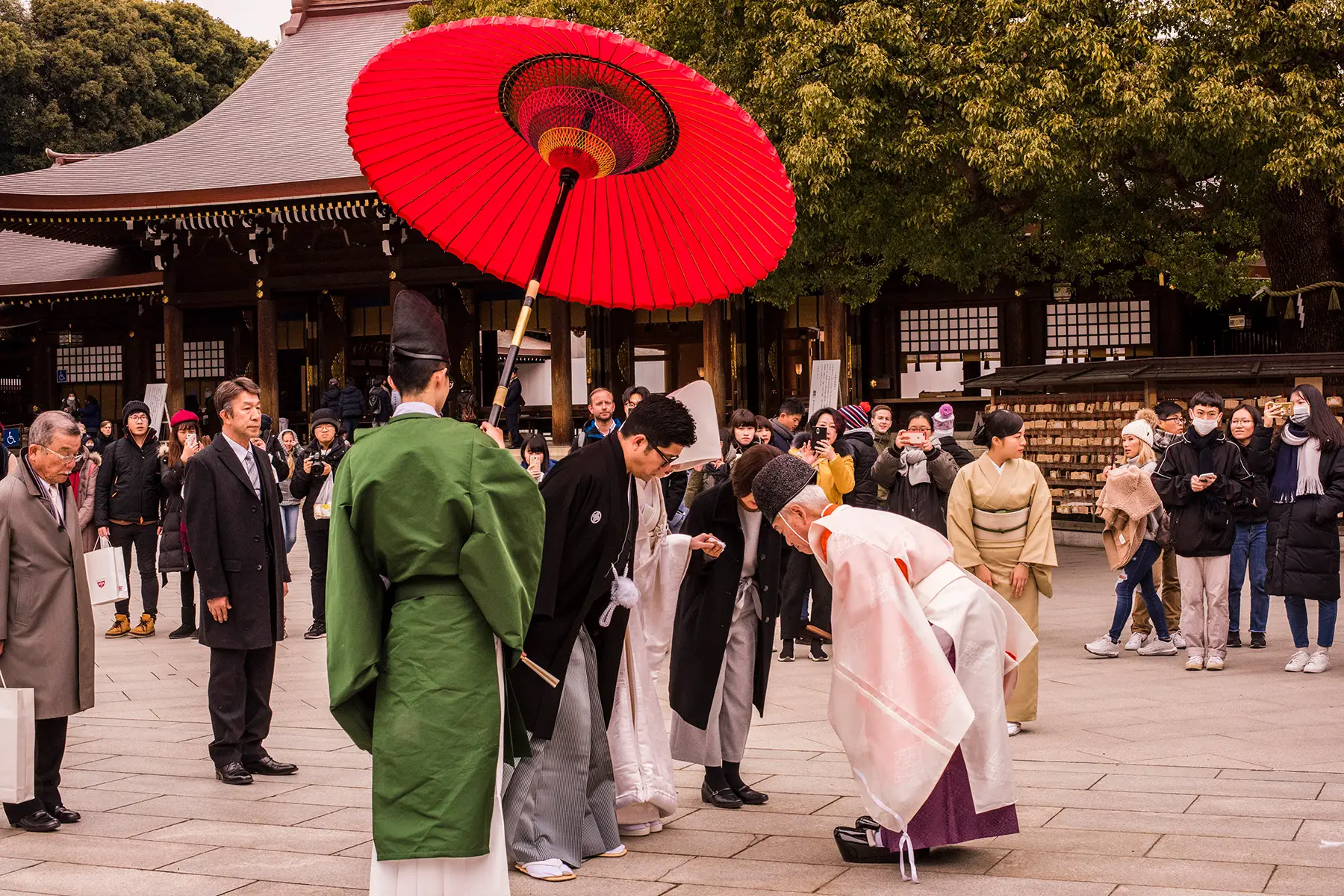
Natural settings
- Yokohama Geihinkan (横浜迎賓館): Popular for couples looking for a modern take on Japanese traditions. You’ll get abundant nature, a splash of luxury, and a nod to the country’s heritage at a garden wedding here.
- Chapel on the Water, Hokkaido (水の教会): In Japan’s north, this chapel boasts postcard windows that offer sweeping views over the nearby lake and is a great space for nature-filled, tranquil weddings.
- Mount Fuji (富士山): Head to the surrounding Yamanashi (山梨) prefecture to have a ceremony on Lake Kawaguchi or Lake Yamanaka. From the foot of Mount Fuji, both lakes offer spectacular views that make for incredible wedding photos. Both towns offer plenty of hotels and restaurants to host the reception.
- Hakuba (白馬): Mountain resort in the Japanese Alps, this is the ideal spot for outdoor weddings throughout the year. There are flowers in spring, blue skies in summer, lush colors in fall, and snowy backdrops in winter.
Hotels and Venues
- Hilton Odawara Resort and Spa (ヒルトン小田原リゾート&スパ): In Kanagawa (神奈川), this elegant seaside resort is nestled between the sea and verdant greenery, making it a good choice for outdoor ceremonies. There’s even a chapel offering magnificent sunset ocean views.
- Hotel Gajoen Tokyo (ホテル雅叙園東京): Blending Japanese traditions with western influences, this sophisticated hotel features gold touches, sweeping murals, and regal sculptures, giving couples and their guests a modern spin on old-world elegance
- Kyo-Machiya, Kyoto (京町家): Host a wedding with a touch of Japanese history by opting for a traditional Kyoto (京都) townhouse for the ceremony. Most have river views or a central courtyard perfect for intimate ceremonies.
Temples
- Meiji Jingu, Tokyo (明治神宮): Built for a former Emperor, this shrine is popular for Shinto ceremonies
- Sensoji Temple, Tokyo (浅草寺): The oldest temple in the capital, this is a beloved tourist attraction with a lovely ceremony hall for weddings
- Shunkoin Temple, Kyoto (春光院): In the former Imperial capital, this Shinto temple offers English services suitable for internationals, and the views are pretty good, too
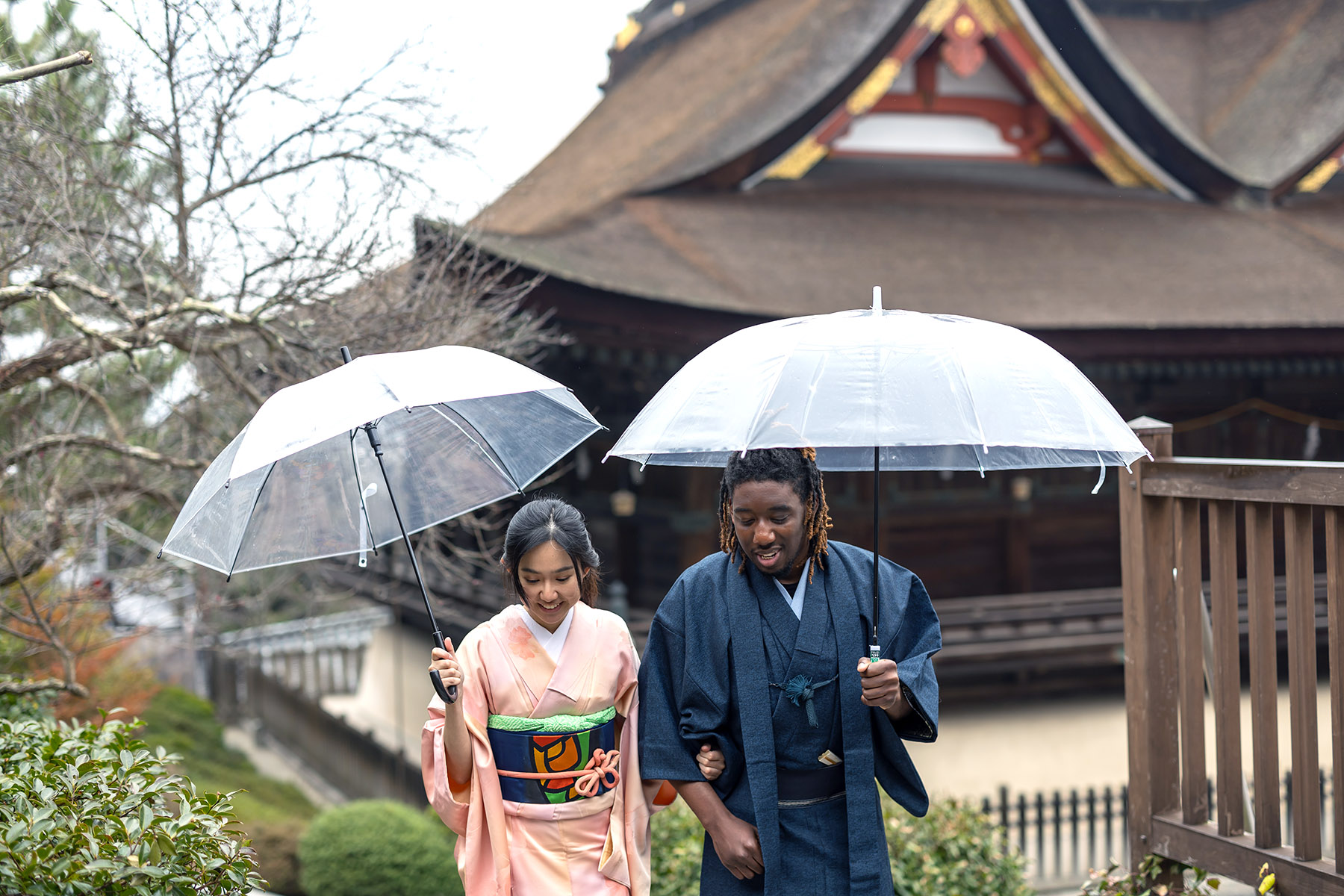
Wedding traditions and customs in Japan
As with all other cultures, Japan has a long list of traditions to do with weddings. Even if you are not having a Shinto ceremony, if you are getting married in Japan, you might choose to incorporate some of the following elements:
- Yuino (結納): The traditional betrothal ceremony where the bride and groom’s families exchange gifts and money
- San san kudo (三三九度): This is the sake-sharing ritual, where the bride and groom each take three sips of sake. Usually, the parents also sip from the cup to signify the blending of the families.
- Goshugi (ご祝儀): In Japan, most couples do not have a wedding registry because guests offer goshugi. This is a monetary gift, usually between ¥30,000 and ¥100,000, depending on your relationship with the couple. The money should consist of crisp, new notes in a special cloth envelope (ご祝儀袋).
- Cranes (鶴): The crane is an important symbol in Japanese weddings, representing a long, happy marriage. As such, you can expect to see these birds in the décor.
- Hiroen and Nijikai (披露宴・二次会): After the wedding ceremony, most couples host a reception (披露宴, hiro-en) with plenty of toasts. After this comes the afterparty (二次会, niji-kai) where the real drinking and dancing happen.
- Hikidemono (引き出物): These are the wedding favors that guests receive at weddings all over the world
- Lunchtime weddings: The Japanese prefer midday wedding ceremonies, often on Sundays, with a lunch reception afterward
- Honoring the parents: Japanese wedding receptions end with the couple presenting a hanataba (花束) (large floral bouquet) to the parents, while the bride gives her parents a letter. This is the couple’s final thank you to their parents as they move into the next chapter of their lives.
- Oiro naoshi (お色直し): This is the tradition of changing outfits throughout the wedding day. Usually, a couple will have at least two looks for their wedding, but they can have up to five.
Useful resources
- The Knot – a popular wedding site with an article on customs to expect during traditional Japanese nuptials
- US Embassy & Consulates – information on marriage in Japan from the American Embassy site
